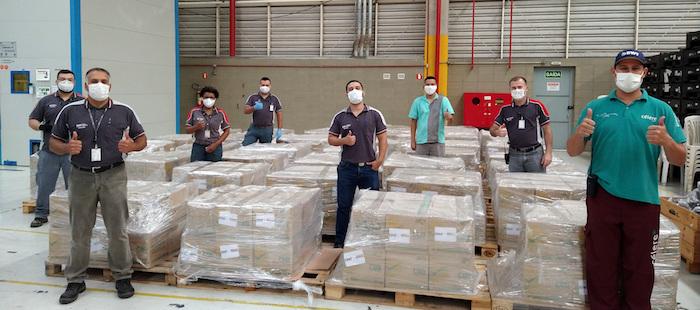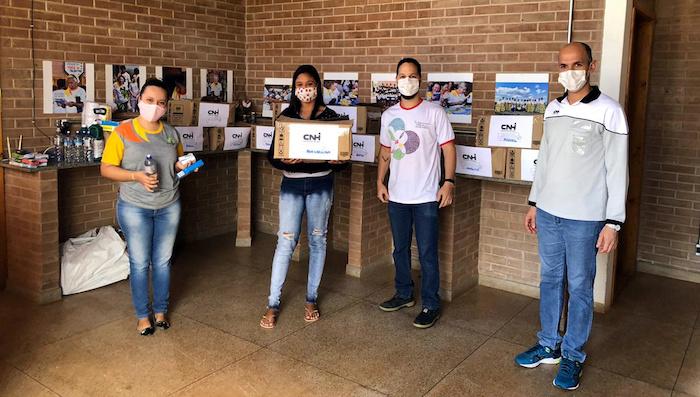CNH Industrial Donates Two Million Brazilian Reals to Combat COVID-19 in South America
CNH Industrial's Social Fund is being used in strategic actions focused on food, health and education in South America, and will assist communities impacted by COVID-19 through short, medium and long term initiatives
CNH Industrial N.V., a leading global capital goods company, previously announced that it would invest two million US dollars to combat and mitigate the impact of COVID-19 across the regions in which it operates. South America is a key region for the company, home to ten manufacturing facilities and seven Research and Development Centers. The money, which forms part of a social fund created by the Company, was distributed following a comprehensive needs-mapping exercise for each region. South America, which is the current epicenter of the pandemic, according to the World Health Organization, received two million Brazilian reals.
The strategic plan, which is already being implemented, is focused on three key areas: food, health and education, comprising short, medium and long term goals. “CNH Industrial is committed to helping communities that have been economically impacted by social isolation and that have become even more vulnerable from the health point of view due to the lack of a structure for self-protection,” said Vilmar Fistarol, General Manager South America, CNH Industrial. “The plan is to assist during the emergency and also to help create the conditions for a resumption, when the critical phase passes,” he concluded.
Erika Michalick, CNH Industrial Sustainability Manager, South America, explained that the resources enhance the Company's existing efforts in combatting the pandemic, and aim to further expand the scope of the activities. “We are working with our suppliers, our brands’ dealers, and NGOs with whom CNH Industrial partners to support children, young people and the elderly who already have relationships with the Company through existing voluntary programs and social projects, and we are extending this reach, whenever possible, to other families and institutions,” she said.
Providing essential food supplies in Sorocaba, São Paulo state
In support of the ‘food’ vertical, the Company is supporting families in need through the provision of basic ‘food baskets’ for a three month period (June to August). Two projects are currently in progress. The first will benefit individuals connected with the social projects already served by CNH Industrial in the states of Paraná, São Paulo and Minas Gerais, which are hubs for CNH Industrial’s manufacturing activities in the Country. The second is in partnership with New Holland Agriculture’s dealer network, assisting additional philanthropic institutions in several Brazilian states. These two projects will reach some 2,000 families in Brazil and more than 1,750 in Argentina, in the cities of Córdoba and Buenos Aires – where CNH Industrial has presence in the Country.
Helping health and wellbeing in Sete Lagoas, Minas Gerais state
In support of the ‘health’ vertical, the Company is contributing to the protection of vulnerable communities, by providing ongoing support to hospitals and local health institutions, as well as helping maintain other health facilities that are impacted by the pandemic. “We are customizing the assistance provided based on the immediate and specific needs of each institution. It includes, for example, the provision of personal protective equipment for regional hospitals and the sanitation of nursing homes, to protect the elderly who are at elevated risk from COVID-19. These activities are already underway. Monitoring is carried out periodically to identify new areas of need,” explained Ms. Michalick.
Another action, carried out in partnership with the IVECO commercial vehicle dealer network throughout Brazil, is the distribution of 10,000 kits which include alcohol gel and masks for truck drivers, who also receive educational prevention instructions.
Medium and long-term actions involve investment in entrepreneurial education, which will benefit socially vulnerable families. The proposal foresees assisting workers and entrepreneurs in resuming their business following the period of enforced social isolation, while also contributing to the economic recovery.



